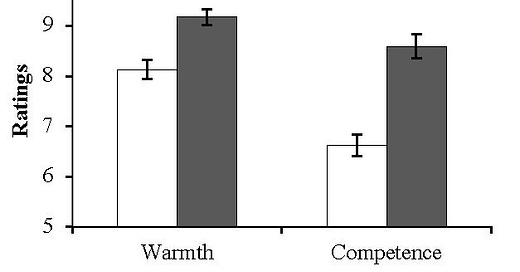One of the most common shortcomings of managers in the eyes of their subordinates is that they don’t pay enough compliments for a job well done. I know that first-hand because like most people I remember how good it feels to be complimented by your boss for your work, yet all too often I forget to compliment my co-workers for their great work.
So, I am guilty as charged and I know that I should pay my colleagues more compliments, yet too often I find myself stymied by a feeling of awkwardness. I tend to think too hard about how to compliment a co-worker. How do I phrase it? What is the right way to say it? Or I may simply be too busy and don’t pay compliments right away. And if it is even an hour later, I start to feel awkward because I feel like I have missed my window of opportunity.
But all these thoughts are focused on my perception of how I think the person I pay the compliment will feel and that perception is simply wrong. Xuan Zhao from Stanford and Nicholas Epley from Chicago have done a series of experiments to test how people feel when they give or receive compliments. And it turns out the person who gives a compliment systematically underestimate the impact a compliment has on the person who receives it – and by a wide margin.
They recruited 210 people on the street of a US City and paired them up. One person was asked to give a compliment to the other person and both were asked how they think the person who receives the compliment will perceive the compliment as warm and sincere, how articulate the compliment will be perceived and if the person giving the compliment will use words that are “just right”. The chart below shows the results from the most basic experiment and the average perception of sincerity and warmth as well as the average perception of competence (i.e. using the right words).
How compliments are perceived by the person who gives and the person who receives a compliment
Source: Zhao and Epley (2021)
The person who gives a compliment systematically underestimates its positive impact on the receiver. Furthermore, the tests done in the study show that what keep people from giving compliments is the feeling of awkwardness they feel before giving a compliment. Notably though, how awkward the person who gives the compliment feels has no bearing on how well a compliment is received. It is all in the head of the person who gives a compliment.
So the lesson for all of us is: Forget about how awkward it feels to give a compliment or whether you think you choose the right words. Just pay your co-workers more compliments for a job well done and you will make them happy and improve the overall productivity of the business. Because happy workers are productive workers and more inclined to stay in their job for longer.





A fantastic post to start the New Year. Compliments aren't just for the workplace. Where I am "guilty as charged" is not doing more of this with my loved ones. Appreciation of others, especially those closest to us, can have an amazing impact on all our lives.
Great post*
Those graphs surprised me - even though we all like to receive compliments, we are not great at complimenting others.
In our company, we have a system of publicly recognizing others (expressing thanks/recognizing achievements, sometimes accompanied by a small cash voucher). I feel that not enough people make use of this system. I am not sure what the roadblocks are, but it is worth encouraging people to say thanks and compliment their team members more often.
I plan to share your post with our HR team and other managers.
* 9/10 on warmth and 4/10 on competence